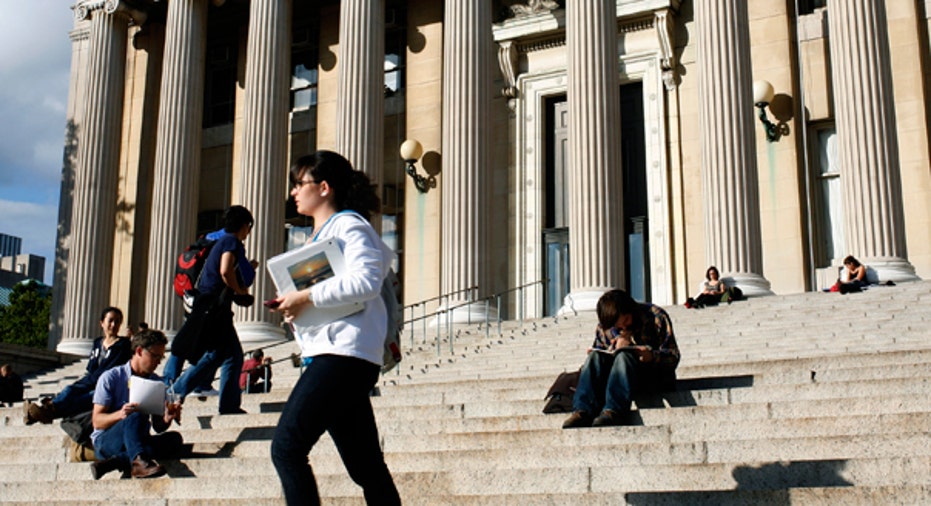Before Your Kid Goes to Study at College, Have Them Study up on Credit Cards

Have a kid who is going to college soon? With a credit card in hand? If you're tired of lecturing your kids about the importance of managing their credit and having them tune you out, let them tune me out instead.
The Topeka Capital Journal, the paper of record for Topeka, Kansas, recently ran a Better Business Bureau article that offered some tips for students heading to college this fall, and how they should manage a credit card, should they end up applying for one.
The Better Business Bureau's advice: "This is an important time to remember that young people between the ages of 18 and 24 carry an average credit card debt of $2,002. It's vital that anyone considering getting their first card takes the time to be selective about which card they choose…"
I'd like to add: Selective doesn't mean getting a credit card from your hometown bank or from your college. Sure, it's nice to have that hometown and university loyalty. But as someone who took a credit card from both my hometown bank and my college for no other good reason than they asked if I wanted a credit card and I said yes, I wish I had had a clue that you can shop around for the best rates. I can imagine if you're an 18-year-old thinking about your future and wondering what it's going to be like to live in a dorm room, if that's the route you're going, that if you're even reading this, how easy it will be to nod and tune out the BBB's sage advice, but they're right. Be selective. Your hometown bank or college may have a great credit card, but don't take their word for it without doing some investigating on your own.
The Better Business Bureau's advice: "Be aware of your credit rating and learn to manage it before things get out of hand."
I'd like to add: Frankly, I'm not sure, 24 years ago, when I enrolled in college that I even knew what a credit rating was. If you're 18 and you understand that high credit ratings -- or credit scores -- mean that banks and credit cards won't be afraid to loan money to you, you're already ahead of where I was.
The Better Business Bureau's advice: They suggest college students become acquainted with the terms:
- APR ("the annual percentage rate tells how much you'll be charged in interest for carrying your balance over from month-to-month. Look for a card with the lowest possible rate.")
- fees ("hunt for a card that has a low annual fee or none at all. Look as well at the balance transfer fees, cash advance fees and late fees. They can add up quickly")
- rewards ("many cards now come with cash back or rewards programs. Take the time to learn about how a card's program works and take advantage of it in order to make the most of your spending").
I'd like to add: Good advice. I can't add much, except to say re-read those terms over and over. And then re-read them again. If you're thinking, "Uh-huh," and moving onto the next paragraph, I've probably already lost you. I vaguely remember my father talking about APRs and fees and the importance of using credit cards wisely when I first applied for my own, and because I thought it was such obvious advice, I didn't give what he said another thought.
The Better Business Bureau's advice: "Don't apply for more than one or two cards… Always make your monthly payment on time. Ideally, you want to pay off the full balance each month. Don't put more on your credit card than you can pay off this way."
I'd like to add: If you have to carry what's called revolving debt -- that is, you buy something that you know you can't pay off within a month -- then at least make sure you're buying something that's vitally important, like your textbooks or because you have to replace a laptop or tablet. If you have no cash, and your bank account only has a few pennies in it, and so you're using your credit card to buy pizza and beer with no idea when your next actual income is arriving, then, trust me, you're using your credit card incorrectly.
If your college student pays attention to even half of the above advice, they'll be well ahead of where most of us started out. Let's hope that there are at least a few (financial) lessons they can learn from books (or websites) rather than from personal experience.
The original article can be found at CardRatings.com:Before your kid goes to study at college, have them study up on credit cards



















